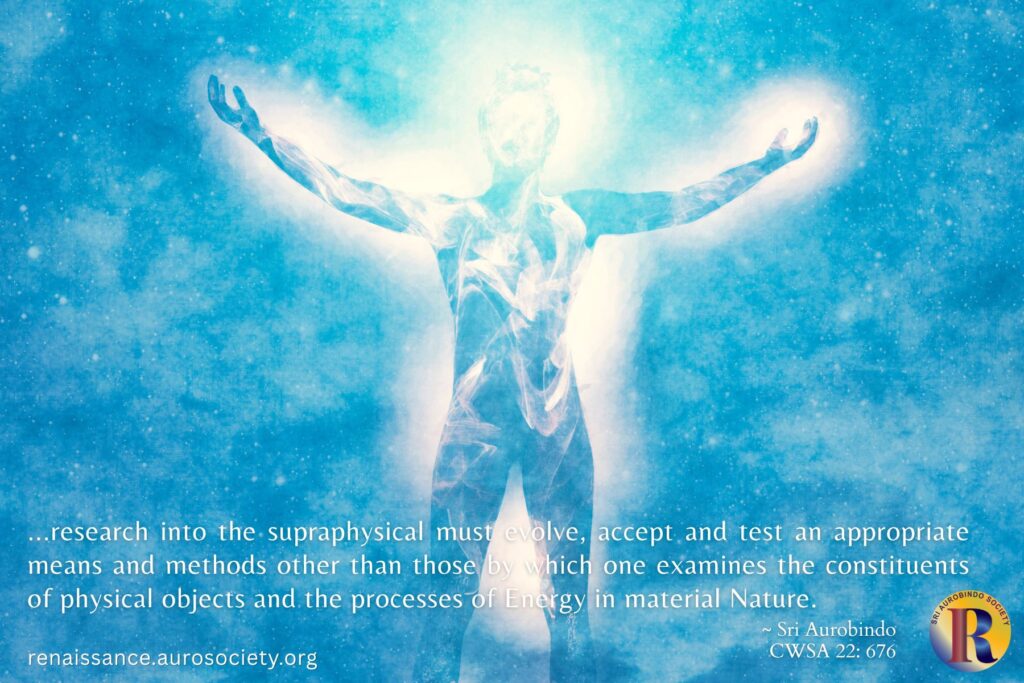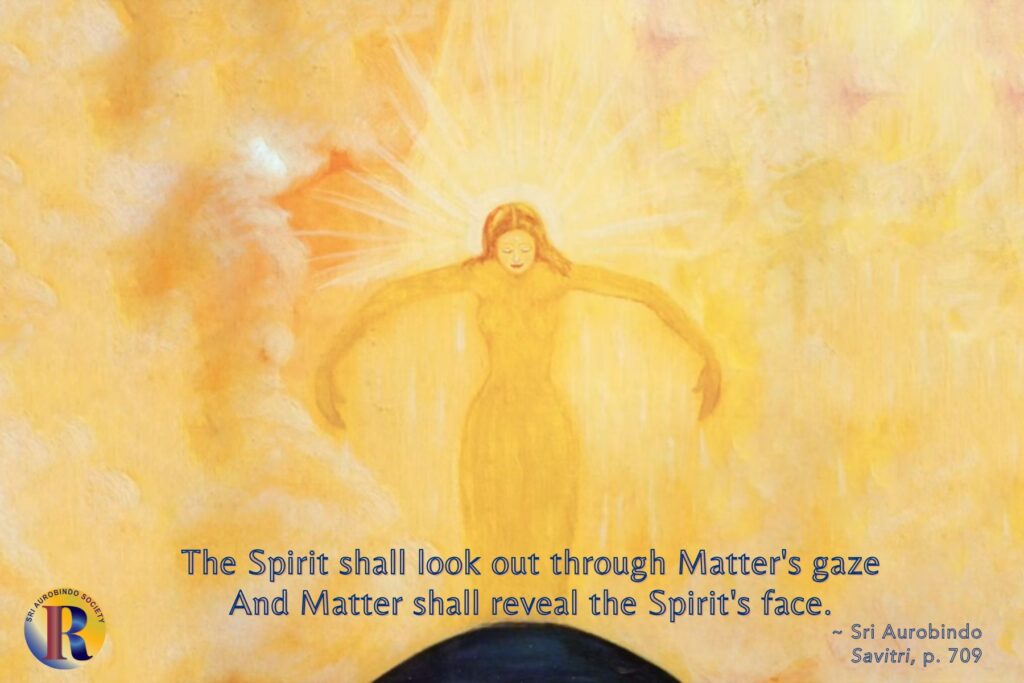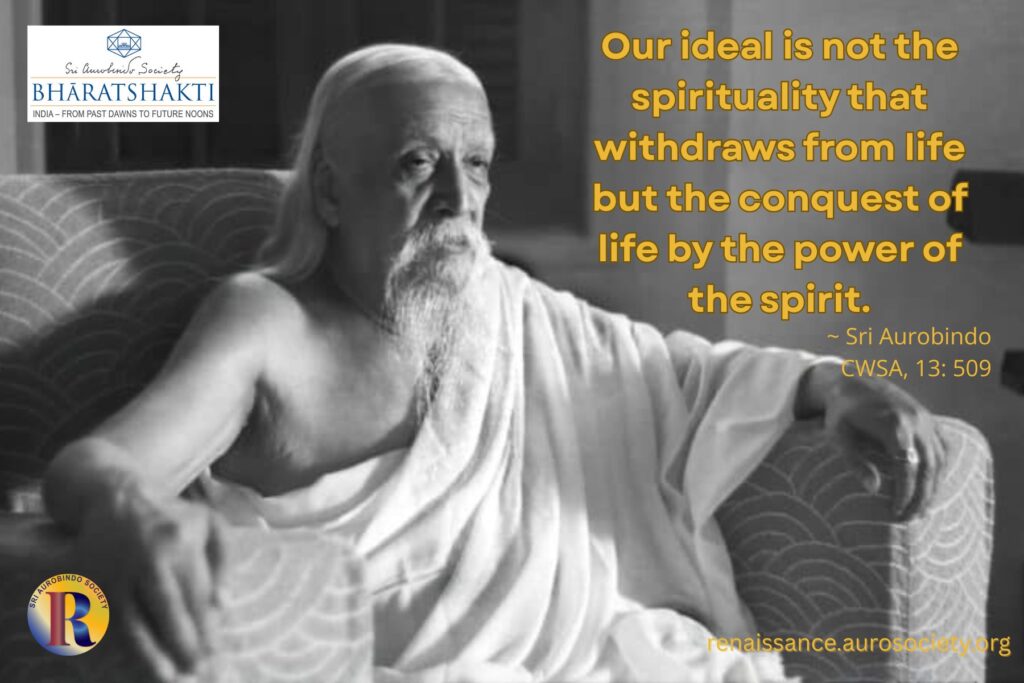Volume III, Issue 4
Author: Sri Aurobindo
Editor’s note: We feature a few selections from the chapter titled ‘The Suprarational Good’ from Sri Aurobindo’s book ‘The Human Cycle’ where he helps us understand the evolution of our ethical impulses and nature from infrarational to rational to suprarational. He reminds us like every other part of our being, the ethical being is also a growth and a seeking towards the absolute, the divine, which can only be attained securely in the suprarational.

Ethics and pursuit of highest utility
Utility is a fundamental principle of existence and all fundamental principles of existence are in the end one; therefore it is true that the highest good is also the highest utility. It is true also that, not any balance of the greatest good of the greatest number, but simply the good of others and most widely the good of all is one ideal aim of our outgoing ethical practice; it is that which the ethical man would like to effect, if he could only find the way and be always sure what is the real good of all.
But this does not help to regulate our ethical practice, nor does it supply us with its inner principle whether of being or of action, but only produces one of the many considerations by which we can feel our way along the road which is so difficult to travel. Good, not utility, must be the principle and standard of good; otherwise we fall into the hands of that dangerous pretender expediency, whose whole method is alien to the ethical.
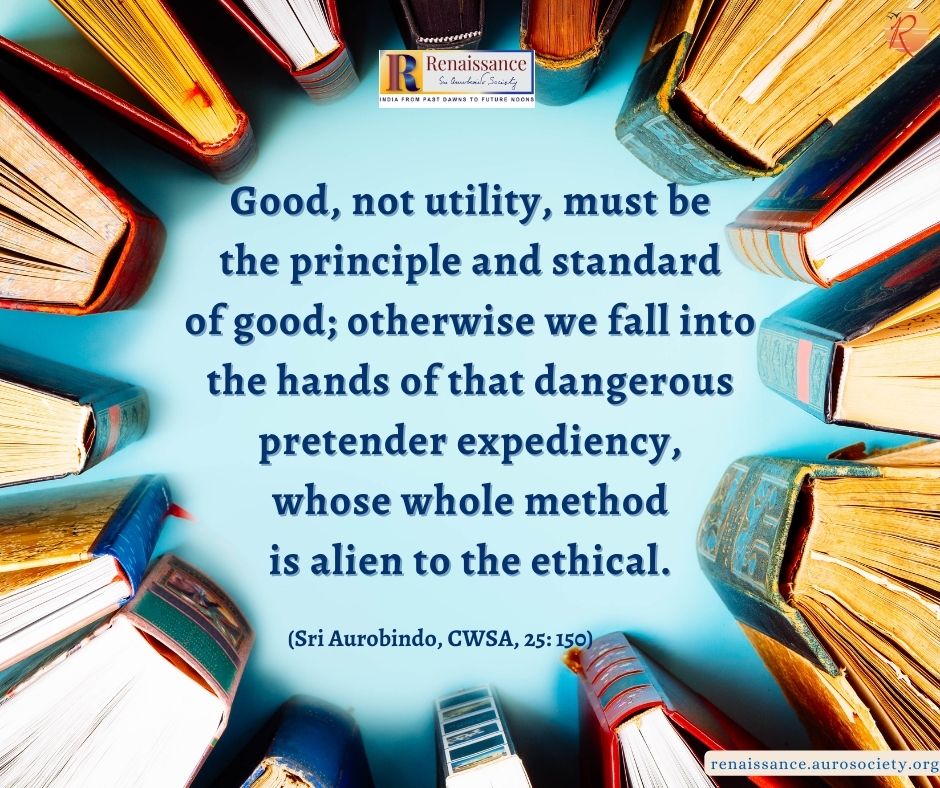
Moreover, the standard of utility, the judgment of utility, its spirit, its form, its application must vary with the individual nature, the habit of mind, the outlook on the world. Here there can be no reliable general law to which all can subscribe, no set of large governing principles such as it is sought to supply to our conduct by a true ethics. Nor can ethics at all or ever be a matter of calculation.
There is only one safe rule for the ethical man, to stick to his principle of good, his instinct for good, his vision of good, his intuition of good and to govern by that his conduct. He may err, but he will be on his right road in spite of all stumblings, because he will be faithful to the law of his nature. The saying of the Gita is always true; better is the law of one’s own nature though ill-performed, dangerous is an alien law however speciously superior it may seem to our reason.
But the law of nature of the ethical being is the pursuit of good; it can never be the pursuit of utility.
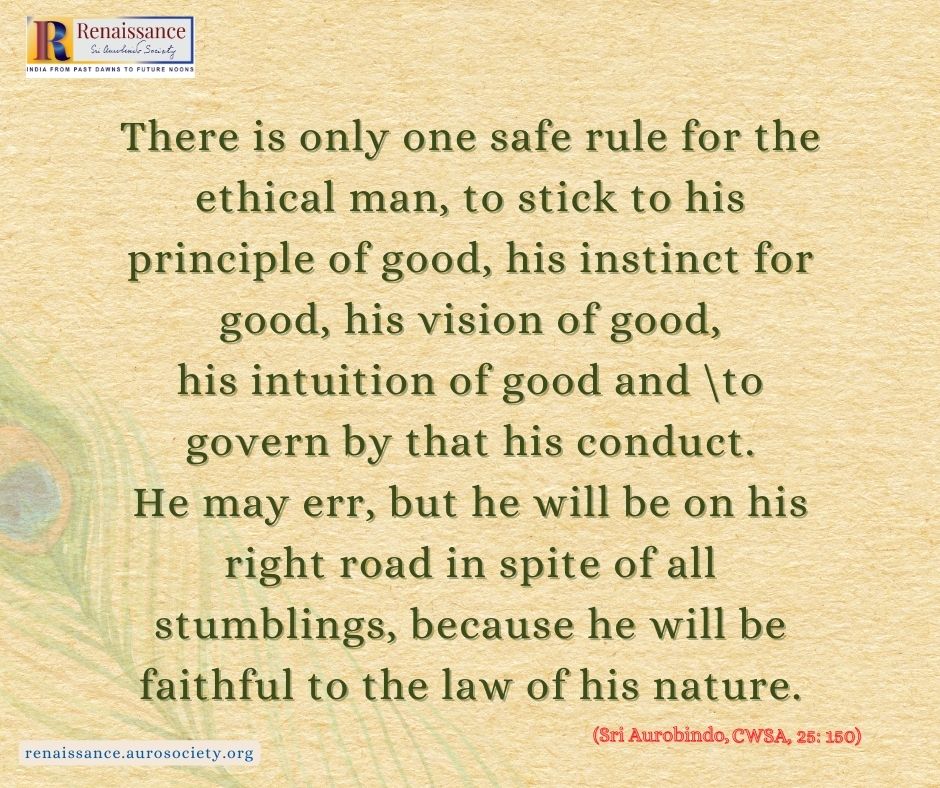
Ethics and the pursuit of pleasure
Neither is its law the pursuit of pleasure high or base, nor self-satisfaction of any kind, however subtle or even spiritual. It is true, here too, that the highest good is both in its nature and inner effect the highest bliss.
Ananda, delight of being, is the spring of all existence and that to which it tends and for which it seeks openly or covertly in all its activities. It is true too that in virtue growing, in good accomplished there is great pleasure and that the seeking for it may well be always there as a subconscient motive to the pursuit of virtue.
But for practical purposes this is a side aspect of the matter; it does not constitute pleasure into a test or standard of virtue.
On the contrary, virtue comes to the natural man by a struggle with his pleasure-seeking nature and is often a deliberate embracing of pain, an edification of strength by suffering. We do not embrace that pain and struggle for the pleasure of the pain and the pleasure of the struggle; for that higher strenuous delight, though it is felt by the secret spirit in us, is not usually or not at first conscious in the conscient normal part of our being which is the field of the struggle.
The action of the ethical man is not motived by even an inner pleasure, but by a call of his being, the necessity of an ideal, the figure of an absolute standard, a law of the Divine.
In the outward history of our ascent this does not at first appear clearly, does not appear perhaps at all: there the evolution of man in society may seem to be the determining cause of his ethical evolution. For ethics only begins by the demand upon him of something other than his personal preference, vital pleasure or material self-interest; and this demand seems at first to work on him through the necessity of his relations with others, by the exigencies of his social existence.
But that this is not the core of the matter, is shown by the fact that the ethical demand does not always square with the social demand, nor the ethical standard always coincide with the social standard.
On the contrary, the ethical man is often called upon to reject and do battle with the social demand, to break, to move away from, to reverse the social standard. His relations with others and his relations with himself are both of them the occasions of his ethical growth; but that which determines his ethical being is his relations with God, the urge of the Divine upon him whether concealed in his nature or conscious in his higher self or inner genius.
He obeys an inner ideal, not an outer standard; he answers to a divine law in his being, not to a social claim or a collective necessity. The ethical imperative comes not from around, but from within him and above him.
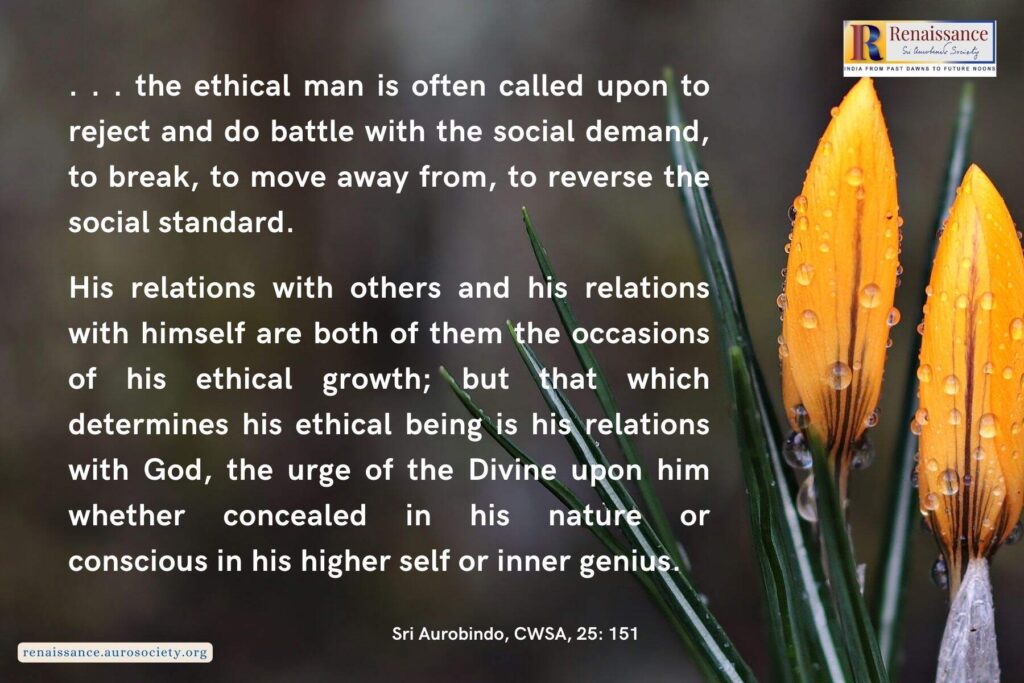
Man’s conscience – a creation of his evolving nature
It has been felt and said from of old that the laws of right, the laws of perfect conduct are the laws of the gods, eternal beyond, laws that man is conscious of and summoned to obey. The age of reason has scouted this summary account of the matter as a superstition or a poetical imagination which the nature and history of the world contradict.
But still there is a truth in this ancient superstition or imagination which the rational denial of it misses and the rational confirmations of it, whether Kant’s categorical imperative or another, do not altogether restore.
If man’s conscience is a creation of his evolving nature, if his conceptions of ethical law are mutable and depend on his stage of evolution, yet at the root of them there is something constant in all their mutations which lies at the very roots of his own nature and of world-nature.
And if Nature in man and the world is in its beginnings infra-ethical as well as infrarational, as it is at its summit supra-ethical as well as suprarational, yet in that infraethical there is something which becomes in the human plane of being the ethical, and that supra-ethical is itself a consummation of the ethical and cannot be reached by any who have not trod the long ethical road.
Below hides that secret of good in all things which the human being approaches and tries to deliver partially through ethical instinct and ethical idea; above is hidden the eternal Good which exceeds our partial and fragmentary ethical conceptions.
The infrarational base of ethical impulse
Our ethical impulses and activities begin like all the rest in the infrarational and take their rise from the subconscient. They arise as an instinct of right, an instinct of obedience to an ununderstood law, an instinct of self-giving in labour, an instinct of sacrifice and self-sacrifice, an instinct of love, of self-subordination and of solidarity with others.
Man obeys the law at first without any inquiry into the why and the wherefore; he does not seek for it a sanction in the reason. His first thought is that it is a law created by higher powers than himself and his race and he says with the ancient poet that he knows not whence these laws sprang, but only that they are and endure and cannot with impunity be violated.
What the instincts and impulses seek after, the reason labours to make us understand, so that the will may come to use the ethical impulses intelligently and turn the instincts into ethical ideas.
It corrects man’s crude and often erring misprisions of the ethical instinct, separates and purifies his confused associations, shows as best it can the relations of his often clashing moral ideals, tries to arbitrate and compromise between their conflicting claims, arranges a system and many-sided rule of ethical action.
And all this is well, a necessary stage of our advance; but in the end these ethical ideas and this intelligent ethical will which it has tried to train to its control, escape from its hold and soar up beyond its province. Always, even when enduring its rein and curb, they have that inborn tendency.
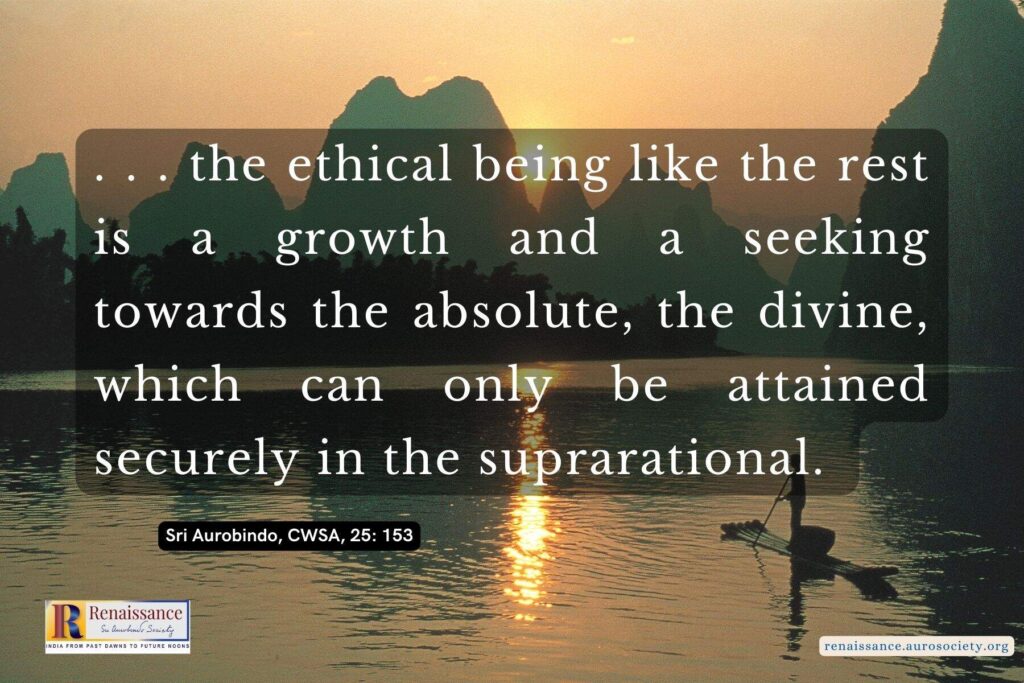
Ethical being and limits of Reason
For the ethical being like the rest is a growth and a seeking towards the absolute, the divine, which can only be attained securely in the suprarational.
It seeks after an absolute purity, an absolute right, an absolute truth, an absolute strength, an absolute love and self-giving, and it is most satisfied when it can get them in absolute measure, without limit, curb or compromise, divinely, infinitely, in a sort of godhead and transfiguration of the ethical being.
The reason is chiefly concerned with what it best understands, the apparent process, the machinery, the outward act, its result and effect, its circumstance, occasion and motive; by these it judges the morality of the action and the morality of the doer. But the developed ethical being knows instinctively that it is an inner something which it seeks and the outward act is only a means of bringing out and manifesting within ourselves by its psychological effects that inner absolute and eternal entity.
The value of our actions lies not so much in their apparent nature and outward result as in their help towards the growth of the Divine within us.
It is difficult, even impossible to justify upon outward grounds the absolute justice, absolute right, absolute purity, love or selflessness of an action or course of action; for action is always relative, it is mixed and uncertain in its results, perplexed in its occasions.
But it is possible to relate the inner being to the eternal and absolute good, to make our sense and will full of it so as to act out of its impulsion or its intuitions and inspirations. That is what the ethical being labours towards and the higher ethical man increasingly attains to in his inner efforts.
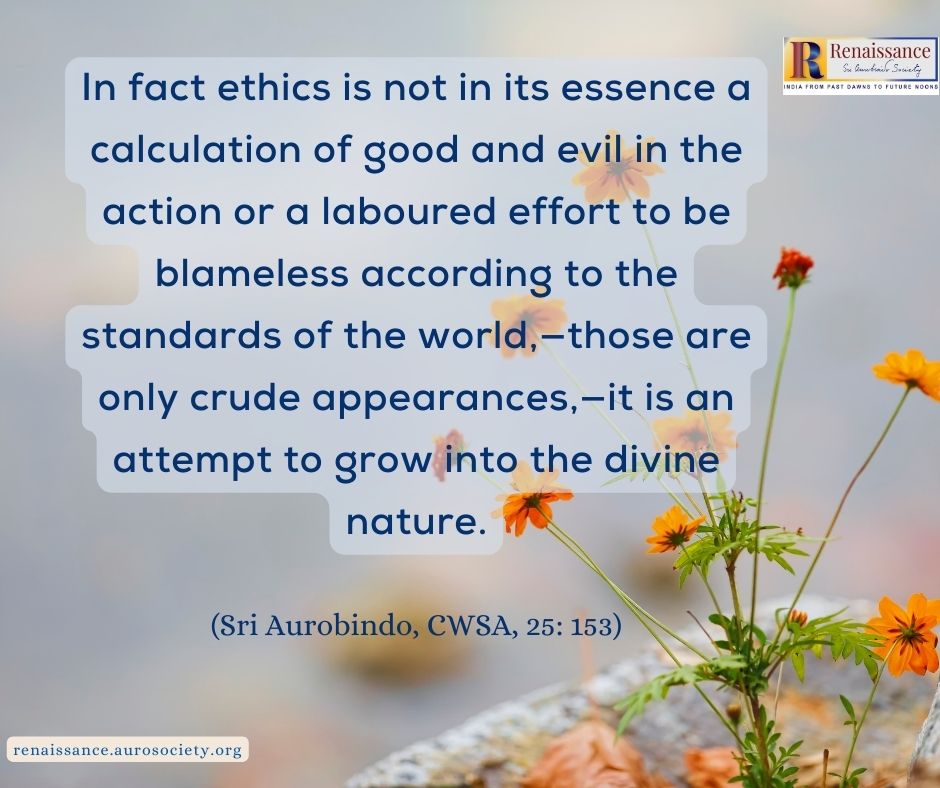
The heart of the meaning of ethics
In fact ethics is not in its essence a calculation of good and evil in the action or a laboured effort to be blameless according to the standards of the world,—those are only crude appearances,—it is an attempt to grow into the divine nature.
Its parts of purity are an aspiration towards the inalienable purity of God’s being; its parts of truth and right are a seeking after conscious unity with the law of the divine knowledge and will; its parts of sympathy and charity are a movement towards the infinity and universality of the divine love; its parts of strength and manhood are an edification of the divine strength and power. That is the heart of its meaning.
Its high fulfilment comes when the being of the man undergoes this transfiguration; then it is not his actions that standardise his nature but his nature that gives value to his actions; then he is no longer laboriously virtuous, artificially moral, but naturally divine.
Actively, too, he is fulfilled and consummated when he is not led or moved either by the infrarational impulses or the rational intelligence and will, but inspired and piloted by the divine knowledge and will made conscious in his nature. And that can only be done, first by communication of the truth of these things through the intuitive mind as it purifies itself progressively from the invasion of egoism, self-interest, desire, passion and all kinds of self-will, finally through the suprarational light and power, no longer communicated but present and in possession of his being.
Such was the supreme aim of the ancient sages who had the wisdom which rational man and rational society have rejected because it was too high a truth for the comprehension of the reason and for the powers of the normal limited human will too bold and immense, too infinite an effort.
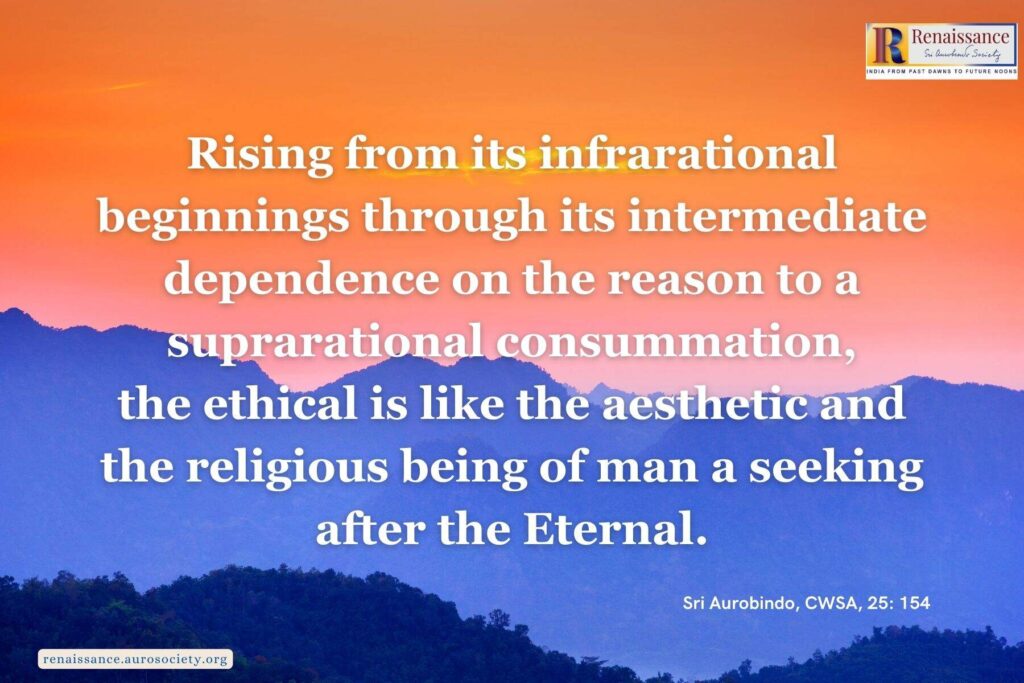
. . . Even in its first instincts it [the cult of the Good] is already an obscure seeking after the divine and absolute; it aims at an absolute satisfaction, it finds its highest light and means in something beyond the reason, it is fulfilled only when it finds God, when it creates in man some image of the divine Reality.
Rising from its infrarational beginnings through its intermediate dependence on the reason to a suprarational consummation, the ethical is like the aesthetic and the religious being of man a seeking after the Eternal.

Also read:
Of God, Universe, Good and Evil
~ Design: Beloo Mehra and Biswajita Mohapatra

